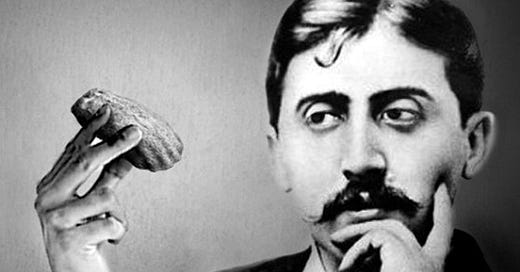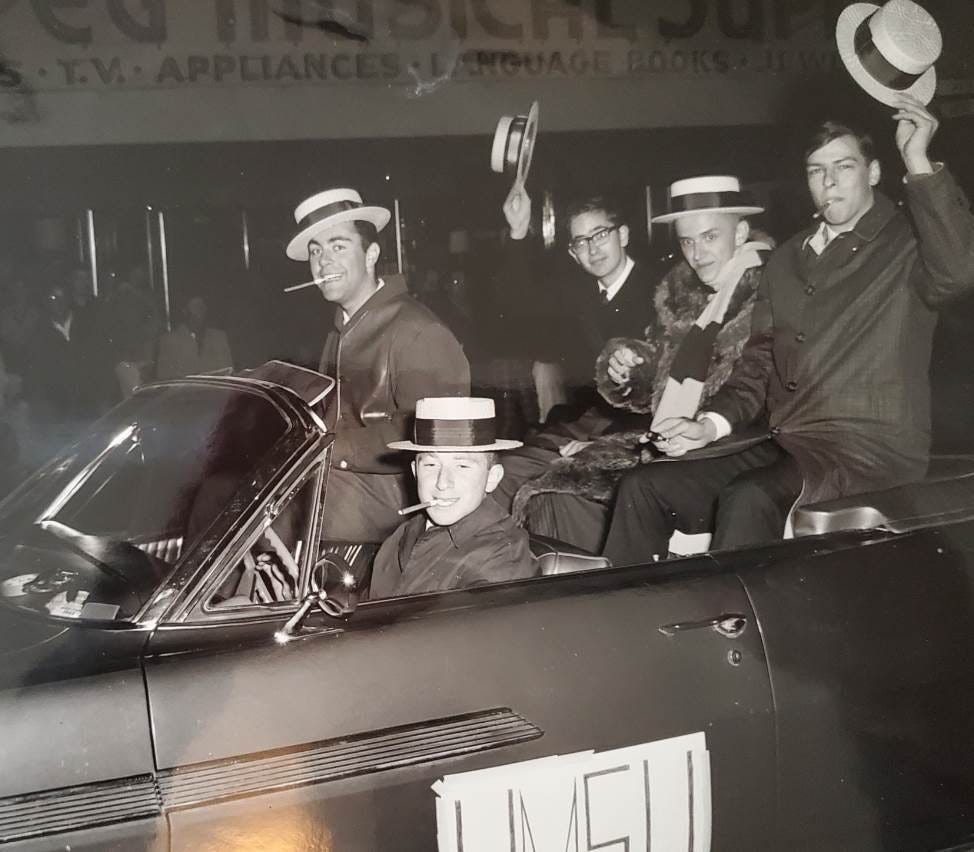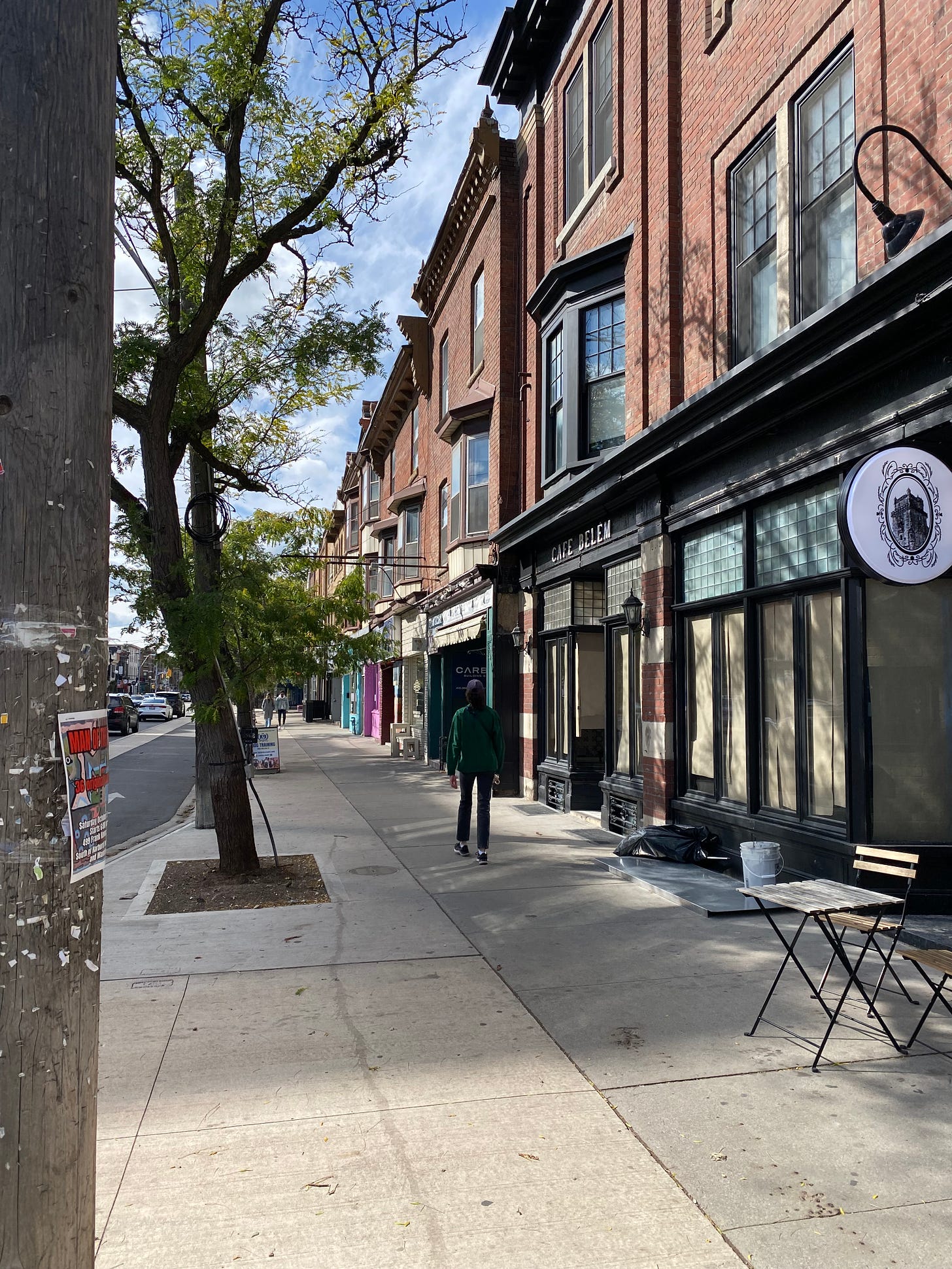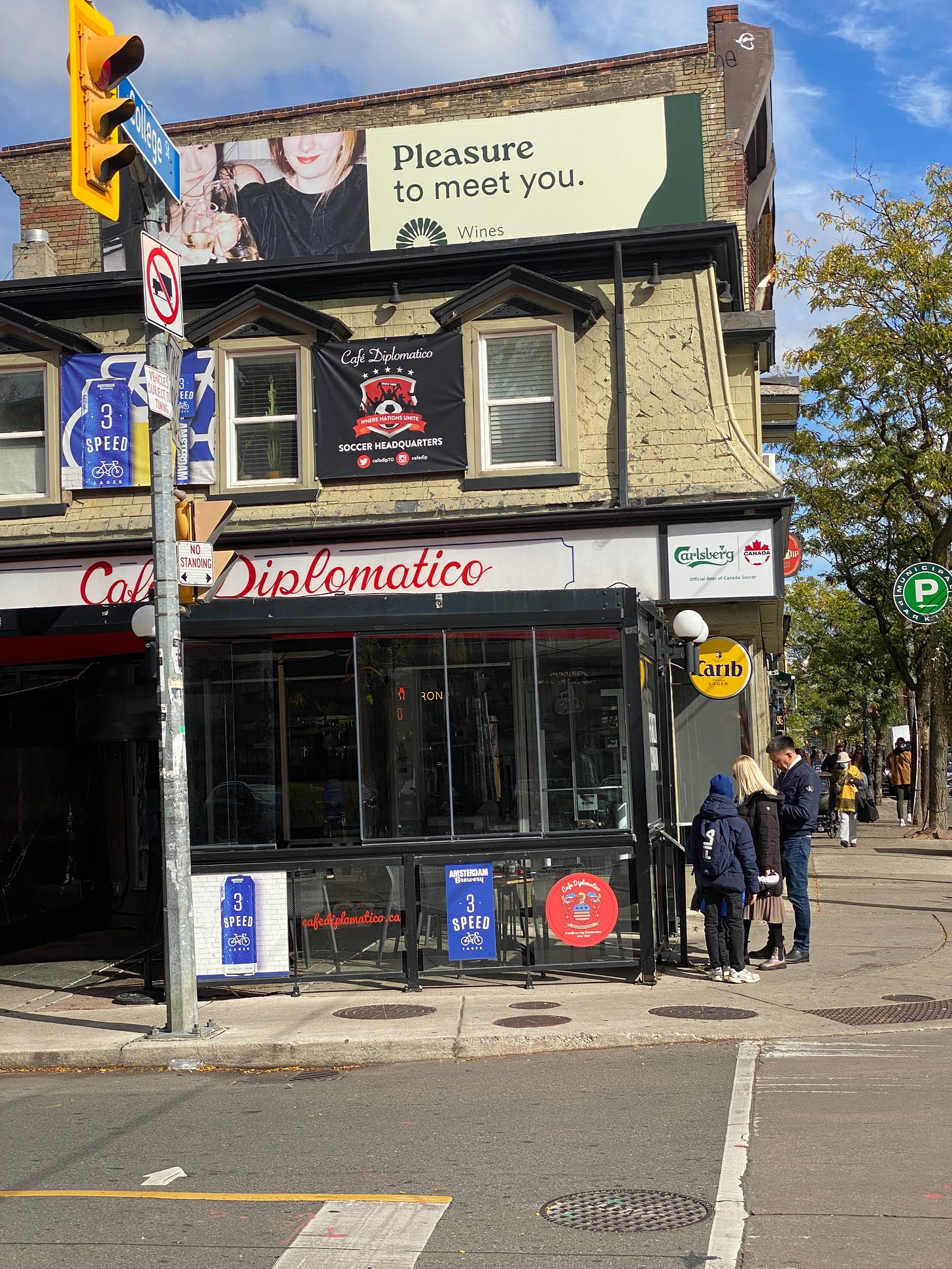Toronto, October 27, 2024
Murray’s Walk
You gather memories as the years go by. Some you savour and summon up for the pleasure of their contemplation. Others are painful; these you try to shut out, but this is not so easy; unpleasant memories can unbidden jab you in the hippocampus, often in the middle of the night. Many memories casually come in and out of view unbeckoned, involuntary, sometimes triggered by an object, a place, a smell, a taste...
Involuntary memory is exemplified by the narrator’s famous reaction to the taste of a pastry in Marcel Proust’s wondrous novel À la recherche de temps perdu. “The taste was that of the little crumb of madeleine which on Sunday mornings at Combray... when I went to say good day to her in her bedroom, my aunt Léonie used to give me, dipping it first in her own cup of real or of lime-flower tea. The sight of the little madeleine had recalled nothing to my mind before I tasted it... perhaps because of those memories, so long abandoned and put out of mind, nothing now survived, everything was scattered...”
My friend Murray died five months ago (see Newsletter #68). We’d been close for ever. Below is a picture of us in the University of Manitoba 1962 Frosh Parade cruising in a convertible along the streets of downtown Winnipeg (Murray is first on the left, I’m third from the left, holding my hat high). Old photographs have great power. In Camera Lucida: Reflections on Photography Roland Barthes, the French literary theorist and critic, wrote, “In front of the photograph of my mother as a child, I tell myself: She is going to die: I shudder… over a catastrophe which has already occurred. Whether or not the subject is already dead, every photograph is this catastrophe.”
I’m awash in memories of Murray. Some of these I summon up. Others are involuntary, often triggered by a place. For years Murray and I walked together almost every Wednesday morning. We’d walked in different places, but the last three or four years we’d settled on what I now call Murray’s Walk, in downtown Toronto. He’d meet me in front of my apartment and we’d set off together down College Street, heading west. This part of College, in what is known as Little Italy, is one of the most interesting and attractive streets in Toronto, a mix of bakeries, greengrocers, butchers, fish mongers, clothing stores, laundromats, variety stores, bookstores, restaurants and bars. When we reached Delaware Street we’d turn north and then, after a block or two, turn right and then right again, circling back to College. Then we’d go east, ending up at Café Diplomatico for lunch. All the way, as we strolled, we talked, about this and that, serious things and not so serious things.
Now I walk Murray’s Walk every Wednesday by myself. I lunch alone in the Café Diplomatico. But I’m not entirely alone. Memories of Murray, triggered by places along Murray’s Walk, keep me company. He is my invisible companion. T.S. Eliot, The Wasteland: “...when I look ahead up the white road/There is always another one walking beside you.” Sometimes I talk to Murray as I walk. I ask him, “Where are you? Where have you gone?”
How long will such vivid memories last? Inevitably they will fade. My invisible companion will lose his sharp edges and eventually disappear. But not completely. Proust again: “But when from a long distant past nothing subsists, after the people are dead, after the things are broken and scattered, still, alone, more fragile, but with more vitality, more unsubstantial, more persistent, more faithful, the smell and taste of things remain poised a long time, like souls, ready to remind us, waiting and hoping for their moment, amid the ruins of all the rest; and bear unfaltering, in the tiny and almost impalpable drop of their essence, the vast structure of recollection.”
Grief counselors tell you to change routines after someone dies, for the old routines are reminders of the person who has gone and will cause distress. But ironically distress is sometimes welcome. Sometimes reminders, memories of your dead friend, are exactly what you want.
Note to readers: I’m told that some readers find these newsletters gloomy. Occasionally, when I bump into a reader who knows me, I am asked, “Are you depressed?” Friends of my wife Cynnie call her and inquire, “Is he okay?” Dear readers, I appreciate your solicitude but be reassured, I’m not depressed (although I am occasionally melancholic). You can write about sad things without being sad yourself.
*****
Some reader comments on Newsletter #84 (“Ticket to ride”)
From my severest critic: “How you slip in erudition to your musings! Scoundrel, sir, a scoundrel! ‘And he went to the phallological museum in Reykjavik.’ Need I say more?”
From Howard Norman, the esteemed American writer: “Some of us travel widely without much money, even in our advanced age. I think of Edward Lear: ‘Here in Corsica, my resources are meager but not the imagination.’ Even at his most formal, Mr. Slayton speaks as if we are sitting across the kitchen table from each other.”
From a cantankerous reader recovering from surgery: “Last ‘Endgame’ I was in the hospital feeling unable to read anything. Now I'm eagerly waiting for my discharge (on a Sunday, good luck) enjoying Philip's extraordinary writing skills and writing my own jumbled comment, mainly because there is nothing quite as boring as a hospital bed when you're feeling fine. My wife and I can't travel anymore and you know what? It's not so bad!”
A sober note: “In addition to the remorse of transition to travel, there is the energy remorse of carbon consumption; yet I go while I can.”
And a salutary reminder, bringing us down to earth: “We don’t all like to travel. Those of us with dietary restrictions find travel overseas a nightmare. And the cost of travel is prohibitive for many of us, even those who are middle class. I did plan to travel more within my own country when I retire, but given how finances have panned out, that won’t happen. Travel is for a privileged few, not for the masses.”
R. Franklin Carter writes: “My grandmother, Florence McElwee, and her four children (including my future mother) sailed on the Ascania either to or from England in 1936. They went to visit her relatives, the Smiths. I have a framed photograph of the five McElwees on board the ship.”
And this reminiscence from my friend Margot: “This made me feel nostalgic. I crossed on the Carinthia in 1963 to go to school in Switzerland. One nice memory of that crossing is how on the evening on which passengers were supposed to put on entertainment, one guy was head and shoulders above the rest: He turned his dinner jacket inside out to make something that looked like a Mountie coat and did a hilarious comedy routine. It was very early Sergeant Renfrew by Dave Broadfoot.”
An impatient and cranky reader writes: “Having just come back from a trip abroad (sounds a lot more romantic than it felt), I found this week’s Endgame particularly apt. I used to enjoy air travel. I loved the idea of sitting more or less comfortably 30,000 feet (never 9100 metres) in the air, sometimes with a meal with identifiable food, thinking ‘Wow, what a wonderful place to be.’ I don’t think that way these days. Air travel makes me crazy and I spend the entire flight thinking ‘Just get me there . . . in one piece.’ It’s true that air travel conditions have change—cramped seats, overcrowded overhead bins, cranky crew. But mostly, I think, I’m the impatient cranky one, the old guy who just wants to be transported, never mind the journey.”
And finally: “Just finished reading your story about why we love to travel. I read it while sitting at JFK Airport on my way to Naples. It was the perfect piece to help me pass the time between my flights and to take my mind off the possibility that my luggage may not make the connection. Another excellent reason to opt for the stay-at-home pleasures of claret and Netflix.”








Philip,I read this in a hospital bed.I’m in tears.So beautiful so loving.
Thank you
Julian
Philip …. A walk with Murray…memories. It was lovely to tour the route that you two took. The pictures allowed me to “live” it. It brought to mind Richard’s and my walk from the apartment through the Vet. Memorial Cemetery to the Public Gardens in downtown Halifax. Moments shared with someone, precious. As we wind down I find my world is smaller. I like the feeling of acceptance but also the enchanted richness of the moments in time.